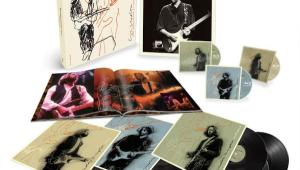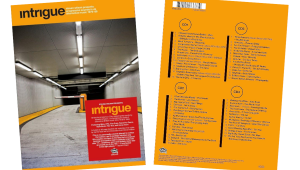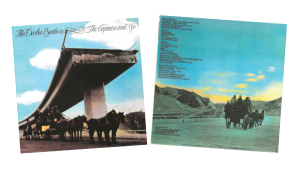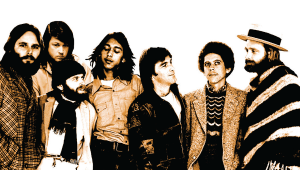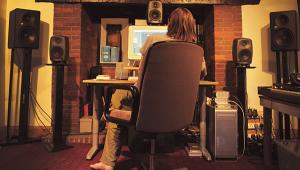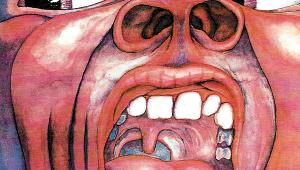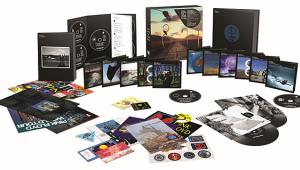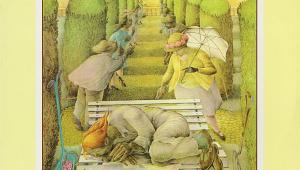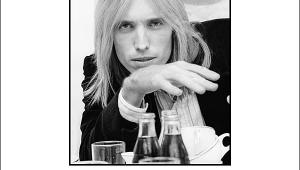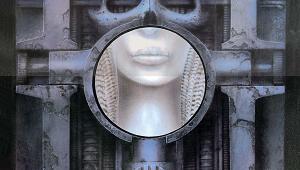Interesting interview! Thanks!
The S+V Interview: Talking Tech and More with Singer Julie Feeney Page 5
The live arena, of course, is another thing entirely.
“For my soundchecks, I do a bit on the stage, and then I go down and walk around. I really want to know how it will sound out front. . . . You have the sound of your music in your head, and you absolutely want that to be represented as much as possible. Still [sighs], you do have to throw in the towel at a certain point in a show when you know it’s not sounding the way it should. You have to say to yourself, ‘These people have paid their money, they’ve come out on this day, they’ve been good to come and see you, so you’ve gotta give them a show, and it’s gotta be the best show you can make it. That’s your job. That’s what you’re here for. So forget it, snap out of it.’
“That said, there’s one particular live engineer — I can’t stay in the room [when I go to a show he does]. You can’t hear the detail; you can’t hear anything. Why, in heaven’s name? It’s shocking. I do not understand it. I was at an R.E.M. show, and I had to leave. I was at a Prince show; same thing.”
Eventually, our discussion turns to physical formats — and in light of the High Fidelity radio series, I ask Feeney about vinyl LPs. She thinks for a long time before answering.
“It’s almost too hard to compare a vinyl record with a CD in terms of the audio experience. Vinyl is an association thing. I remember, when I was small, seeing Dubliners records played. And somebody had this lying around: a Boney M. album, with “Rivers of Babylon.” [Nightflight to Venus, 1978.] The LP jacket was a physical thing, and it was beautiful.
“This guy wants to put Pages on vinyl. I’d love to have it on vinyl, but I’m concerned that it’s kind of a fad now.”
Well, everyone’s doing it these days. U2, Coldplay, Lady Gaga . . .
“Lady Gaga’s on vinyl? What? [She gives a delightful yelp.] I didn’t know that.”
On the other hand, the days may be numbered for all physical formats. Does that bother Feeney?
“It kind of does. When I flew in here yesterday, the plane noise was really loud, and I was listening to Prokofiev’s Romeo and Juliet, almost as an exercise — I was trying to hear the brass, the winds, the themes. And I realized that, for most people, they’re hearing music in a different way, on a totally different level.
“Then I listened to some of my own album. . . . I found that Pages is on Aer Lingus. I’m in between Justin Bieber and James Blunt and Josh Groban. It’s just really quite funny: me, an independent artist, among those guys. . . . Anyway, [because of the compromised fidelity], it sounded really bizarre. The double bass sounded sort of like a sitar mixed with an electronic keyboard. I was thinking, ‘That’s quite funky. I hadn’t thought of that before. It’s a completely new album.’ The voices were quite all right, but most of the mid stuff was gone; you’d expect it to be the other way around.
“Well, there were a couple of hundred people on that plane — and, what are there, thousands of planes every day? And then there are all the people who listen to iPods. I mean . . . it’s the way. It’s the way music is going.”
- Log in or register to post comments


It's worth noting the contrast with the United States, where mandatory music education is on the decline. This difference in approach highlights the diverse perspectives on the role of music education in a student's development and the challenges countries face in ensuring its effectiveness.If you're looking to delve deeper into this topic, you might consider purchasing a dissertation abstract at https://essaysprofessor.com/buy-an-abstract-for-dissertation-online.html that explores the intricacies of music education in various regions, shedding light on the evolving landscape and its impact on students.
